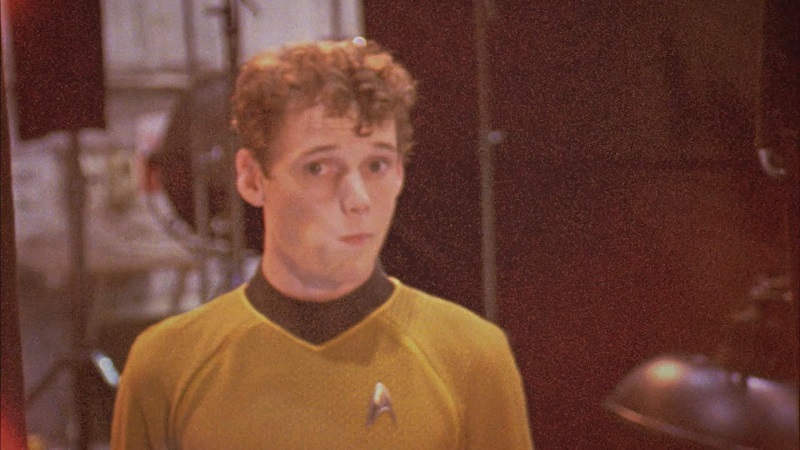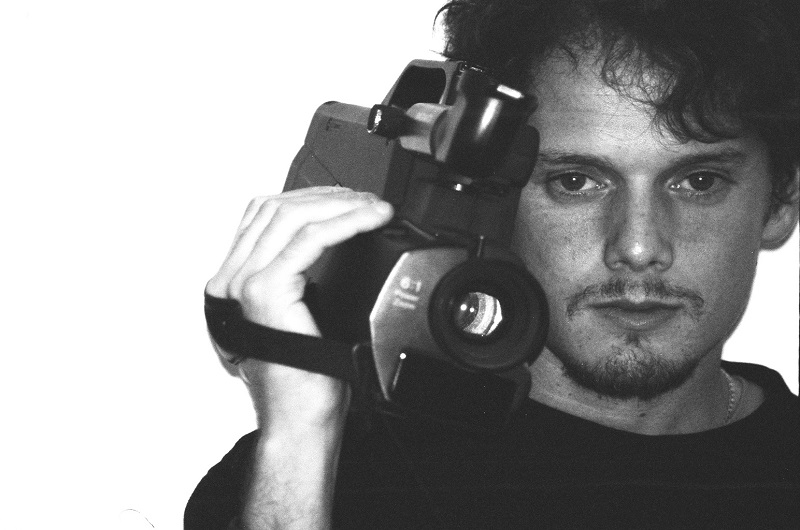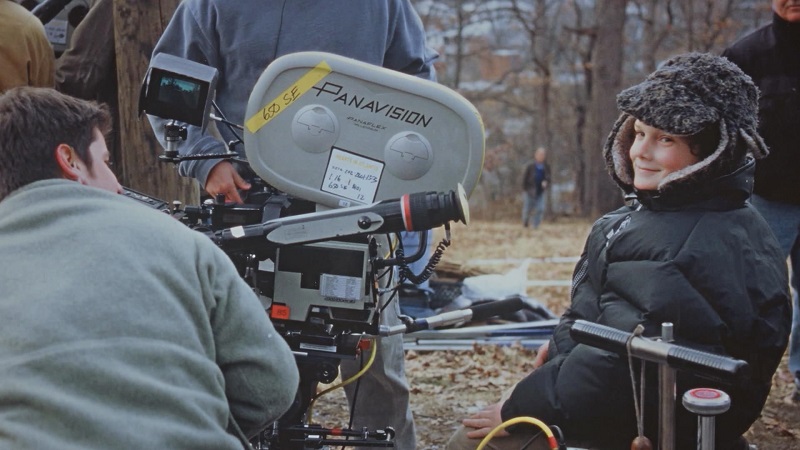When actor Anton Yelchin died in a freak accident on June 19, 2016, it was a tragic day. An innate, bright and true creative talent had his light extinguished way too soon. Love, Antosha is the most endearing of a documentary tributes to a performer—most recognized for his scene-stealing role in J.J. Abrams’ Star Trek reboot, that found him portraying a fan favorite, Chekov.

His parents emigrated from the USSR (right before The Wall fell) and landed in the United States. In filmmaker Garret Price’s latest, there is footage from all stages of Yelchin’s life (one of the benefits of docu subjects centered around the last 30 years is the prevalence of video cameras) and as such as the man himself, his parents, longtime childhood friends who he still rolled with and of course, those who knew him creatively.
Among those to add priceless and emotional insight in that realm is Kristen Stewart, Jennifer Lawrence, JJ Abrams, Chris Pine and Zachary Quinto. What they collectively reveal is a kind soul that couldn’t have been more giving personally, professionally and on a humanistic level. These famous folks offer the most touching of stripped down reflective thoughts on their friend and colleague. Each brings an unique perspective on what it is that made Yelchin special yes, but most importantly there is an individuality to their recollections, experiences and personal connection with the late actor that a real three-dimensional picture of him emerges that could not be richer, layered and touchingly laid out by those who knew him best.
There are too many revealing moments in this realm to even attempt to quantify. Let’s just say that the one that sticks comes from Stewart. She starred opposite Yelchin in 2005’s Fierce People. The Twilight veteran and star of the upcoming Charlie’s Angels reboot from Elizabeth Banks was clearly taken with her co-star on many levels. She captures the essence of him so brilliantly and not only what he meant to her, but what it was about his craft that was so seismically sensational.
A documentary achieves greatness or falters, often, by so-called talking heads and what Stewart lays out there when it comes to describing her soul brother makes us mist up and simultaneously smile profusely. I’ve covered Stewart since before Twilight and it’s not that she’s not articulate, it is more that she is innately awkward in trying to get her thoughts across to people she doesn’t know all too well. How much Yelchin touched her soul comes through so effortlessly for Stewart, largely I believe, because of the special relationship the two shared. Her insight not only offers priceless insight into his endless vat of talent, but also what it was that made him so appealing to so many—specifically women.
He was not a headline grabber for who is he dating now type of gossip, but something arises from Love, Antosha that is somewhat surprising, but in hindsight seems obvious after experiencing this documentary. Stewart impeccably describes how the opposite sex just adored him, and I is pretty clear … her specifically. Whether they dated or not is not laid out, and it doesn’t matter. He washed over her like a tsunami and the aftermath of the experience that is being in his orbit still resonates with the fellow child star who seamlessly morphed into a grown-up thespian. It is here that Price showcases Stewart’s insight into this aspect of the star, coupled with several images and video of the swooning that was a complete surprise to this viewer. It makes sense in hindsight, what with his supremely informed intelligence, vivacious personality and looks that aren’t traditionally considered “gorgeous,” but become so when the entire package comes together.

Lawrence puts things in perspective in another way that hits this film journalist right in the gut and will likely you as well. The Hunger Games star lays out why audiences were robbed when his Jeep pinned him against the front gate of his home. Decades of riveting and astutely awesome roles that Yelchin never got to bring to life have left a Grand Canyon-sized hole in the Hollywood landscape that will never be filled.
What is most striking, to no one’s surprise, is the recollections of his parents, Irina Korina and Viktor Yelchin. The pair left the Soviet Union hoping to give a better life to their child. There is an enormous sense of satisfaction with the fact that Antosha’s triumphant career validated their tough and risky move. The extremely personal reflection by two parents who are still clearly grieving the loss of their only child and will likely feel that way until their last breaths comes off as a stunning combination of sadness, deep emotional scarring, countless moments of shared wide-eyed joy, familial fondness and a steady dose of laughter when recalling the silly side of their pride and joy. Sure, he was close with both parents, but what Love, Antosha makes clear through footage, Yelchin’s own words, his co-stars and family friends right on down the line is how adoringly close he was with his mom. She was obviously his hero (he even says as much) and their relationship was one that sets the bar for a mother-son connection that we all should aspire to mirror.
Another element of Yelchin’s story, that many may not know, is that acting and storytelling weren’t his only creative talent. The first generation American was also fascinated by music and was incredibly gifted in that arena as well. The footage of his playing with his band or even acoustically solo will only add to his legend and leaves us wistful wondering what could have been. He died at the age of 27 (like many before him, such as Jim Morrison, Janis Joplin, Kurt Cobain, Jimi Hendrix, Amy Winehouse) and had 69 credits to his name as an actor. One can only imagine what kind of musical menagerie might have come from the artist should he been given the chance to see 30, 40 and beyond.

Price paints the most complete of pictures of a master whose work touched countless individuals. He does so in a way that is full of narrative ebbs and flows. The film is populated with scenes that produce feelings that run the entire human emotional spectrum. We are there for the entire ride that is the Anton Yelchin experience and everything that that means. When news arrives, towards the conclusion of the documentary, that Yelchin had perished, one can easily drift into the melancholiest of sorrows. That occurs, yes. But what is so incredible about Love, Antosha is that the overriding sense, i.e. the takeaway from witnessing Price’s work, is one of sublime blissfulness.
Yelchin is gift to us all, a soul who utilized every minute he had on this earth to the fullest. He enlightened and touched innumerable lives. Through Price’s film, we are spurred anew to follow dreams and live life to its absolute busting at the seams fullest. Yelchin did … and he moved us immensely in the process. That is why the complete sadness that could have been the lingering spirit of Love, Antosha quickly washes away in a sea of optimism. See, this is a human being that did everything humanly possible in the short amount of time he had on this planet. He knew what he wanted to do at the earliest of ages and went at it with full force. As a (younger) youngster, he was diagnosed with cystic fibrosis—a disease that had a life expectancy of around 30. Nowadays, some live to 50. Prince illustrates how the disease affected him physically, mentally and psychologically. The thing is, Yelchin appeared to have approached life the same, regardless of health or illness—it is just how he was wired. He cherished every relationship and therefore would have no regrets. He worked to his immense potential and therefore, would have no regrets. He loved completely … and would have no regrets.
Above all else, Love, Antosha is a lesson in making the most of every moment. Should the end come before any of us expected it to, we too would have no regrets.
Grade: A+

